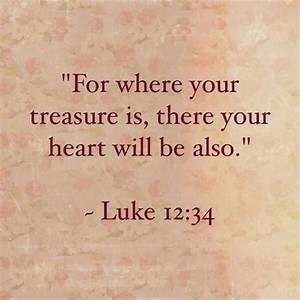“Written on Our Hearts!”

Jeremiah 31:31-34 (31:33) – March 17, 2024
Relationships are foundational to life. Positive, negative, distant, close. Both of my parents are gone now, but I had a loving relationship with both of them. My sisters and brothers—again, I have relationships with them. Members of my extended family, too, are included in my list of relationships. Also my friends, acquaintances, colleagues, even my enemies. All of these people have relationships with me.
Think about yourself. You have relationships with many, many people, too. Most of your relatives and acquaintances I just mentioned, if not all of them. Positive or negative, distant or close. We all have relationships—or friendships—with many people.
But what about God? What kind of relationship do you and I have with God? Is that relationship good? Even wonderful? Is it close? Or distant? Bumpy at times? Our Scripture reading for today talks about this relationship. The prophet is talking about it from God’s perspective. God’s view of the relationship, or the friendship, if you will.
If we think about the nation of Israel in the time of Jeremiah, the nation was devastated, and destroyed by the conquering nation of Babylon. The nation of Israel was probably not thinking about keeping up their relationship with God at all – with so much chaos and destruction surrounding each individual, each family, across the whole country.
Centuries before the time of Jeremiah, God gave the Ten Commandments to Moses, and the whole law code of Moses in the years after that. This law code or rule book was meant to be a structure for the nation of Israel to follow, to live their lives, on a daily basis. And, this structure was a way for them to have a relationship with their God, their helper and deliverer – if they chose to follow God and God’s ways.
Isn’t that the main problem? The nation of Israel had continuing problems following God’s rule book, God’s law code. Isn’t it exactly the same thing today, that you and I have the same problems following God, too?
We’re not talking about a distant God, a God Who wound up the universe like a watch, put it on some shelf, and then walked away and promptly forgot all about it. No! The Lord wants to be in a relationship – with us!
If we look at this reading, we see that God did have a relationship—a friendship, we could say—with the nation of Israel. God was the one Who started it. See what verse 32 says? God took the nation of Israel by the hand when God led them out of Egypt. God wanted the friendship. Israel did not start the relationship.
We can compare that friendship to God’s relationship with us. God wants us as friends, too! Just as with the nation of Israel, God goes out of God’s way to make friends with us. You and me. Each and every one of us. God approaches us.
But something happened. Something awful! The nation of Israel was not a faithful friend to God. The relationship was disrupted, broken. But, God didn’t break it. No! Israel did. Remember the many, many times in the Hebrew Scriptures that Israel ran away from God? Or forgot about God? Or just plain ignored God? Time after time, we can read about how the nation stumbled, resisted, or was unfaithful to their friendship. Their relationship.
We can see the number one reason the people of Israel were taken out of the land and sent into exile: because the people broke their Covenant and God’s rule book time after time after time again. That’s the big reason for the nation of Israel’s exile to Babylon.
What about us? What about you and me, in our relationship with God? Isn’t it a lot the same? Don’t we stumble, or fall? Haven’t we forgotten about God, or even broken God’s rules? I’m thinking of sin. Putting other things in God’s place. Making other things or other people in our lives more important to us than God.
Our relationship with God is broken! Disrupted. Sometimes we grow so used to sinning, to being apart from God, that you and I cannot choose to do anything else. What a predicament! Our relationship with God—under the Old Covenant—is gone. Destroyed. We are sunk, there is not a chance for you and for me.
What about the nation of Israel? What did God do for them? Rev. Sharon Blezzard said, “God does not abandon the people, even when their hearts have turned from God’s divine love and life-giving law. God is faithful and promises to be known – not just in word and in teaching, but in the very DNA of the people.” [1]
The Lord does not leave us abandoned, either! God still wants to be in relationship with us! With you, and with me. God’s nature is not punishing or arbitrary, but instead loving and forgiving. This forgiveness is heart language, from God. And, God will write this new covenant, this new relationship upon our hearts.
The foundation of this forgiveness comes from our new knowledge of God, written on our hearts. And what is our response to God’s love? God’s forgiveness? God’s reconciling embrace? You and I have the opportunity to live changed lives, as changed people—from the inside out. God is not willing that anyone should be strangers, but instead that all would have the opportunity to be friends with God. Best friends.
God will be our God. We will be God’s people. And that’s a promise. That’s forgiveness. That’s the opportunity that each of us has to be with God, forever. Amen, and amen.
(Suggestion: visit me at my other blogs: matterofprayer: A Year of Everyday Prayers. and A Year of Being Kind . Thanks!
[1] https://www.stewardshipoflife.org/2015/03/language-of-the-heart/


